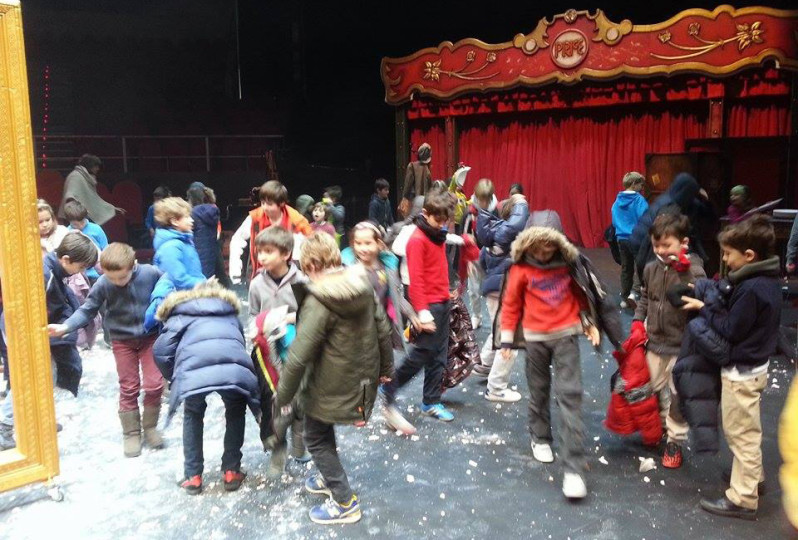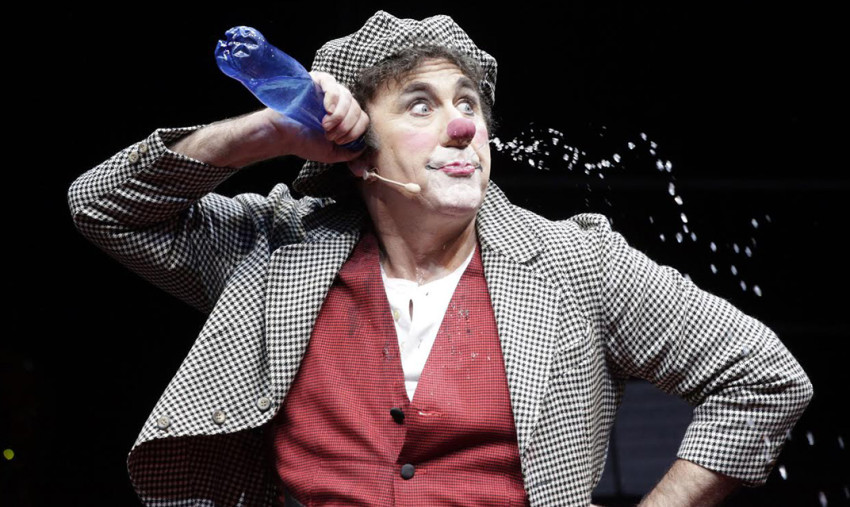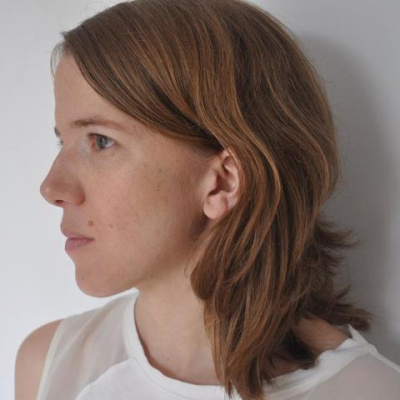Laribling: David Larible Premiers His New Show in Madrid
David Larible presents Laribleando (“Laribling”), his new show, in its world premiere at Teatro Circo Price, Madrid. In a press conference the day before the opening, he explained the importance of great clowns to his career, how he became a clown, and how the global crisis has inspired his work.
The circus ring of Teatro Circo Price is happily messy. Almost a hundred children jump and run on the remains of broken dishes that cover the ring like a white blanket. Journalists and cameras run around too, following the man in the middle of the pandemonium: David Larible, The Clown. He looks after everybody with the same charming smile. Of course, the broken dishes the children step on are the consequence of one of the acts we have just seen. Meanwhile, Larible hugs, waves, and poses for the cameras and cell phones.
Larible has just presented, for the first time in public, excerpts from his new show, Laribleando (“Laribling“), in a meeting with the press. Dozens of children from an invited school have provided their presence and their unconditional response to Larible. The show is currently having its three-week world premiere in Madrid and Larible has been promoting it intensely.
Larible experienced great success when he performed in Madrid in 2013. Since then, journalists have adored him and responded well to his promotional invitations. A few days ago, Larible even invited them to share some delicious spaghetti, which he himself cooked. No doubt he has the capacity of turning a regular day into a funny, brilliant event. “Last time I was here I was so warmly welcomed that afterwards I felt I owed a debt to the people of Madrid,” he quipped.
Larible is one of the most famous clowns on the current world circus map. He was awarded with a gold medal in Monte Carlo in 1999 and was acclaimed by The New York Times as “the best clown in the world,” a proclamation he bears uneasily: “I’m not very fond of this name. It’s not false modesty; it’s just something somebody said once and now I have to take it with me. I can’t do anything.”

Before becoming part of the program of great circuses such as Circus Knie, Circus Roncalli, Ringling Bros. and Barnum & Bailey Circus, and Circus Krone, Larible was born in a family with a long circus tradition, full of trapezists and acrobats. His family wasn’t very glad when David chose to be a clown, as he admits, but he was already an absolute fan of Chaplin, Grock, Charlie Rivel, and the Tonetti Brothers, whom he met in Spain while he father was working at Circo Atlas season. “I was born as a clown in Spain. My seed was sown here. Spain has always had an amazing school of clowns. Pepe Tonetti (born José Villa del Río, 1920–2004) was my inspiration when I was a kid. I was four or five years, and my father filmed me in a Super 8 movie imitating Pepe Tonetti. The clowns were our idols. We didn’t have the Power Rangers. I learnt from Pepe not to use so much make up. He only used slight touches of make-up to make a face that could bring laughter and emotion.”
Another Spanish clown hero was Manolo Tonetti (“Nolo,” born Manuel Villa del Río, 1928–1982). Larible fondly recalls his deep voice saying, “Good evening, clientele,” recounting, “I was so small, and this still remains in my heart and my soul. Nowadays, parents come to me and say, ‘David, our son is your number one fan, he comes to all your shows, he has your pictures,’ and I remember myself, how fascinated I was by the clowns.”
Larible also has a beautiful story about Chaplin: “Geraldine Chaplin came to the Circus Knie to see me. She came three times and told me amazing things I can’t repeat. Together, we visited the Chaplin family home, and she recounted stories to me: ‘This is were my dad used to play the piano. …’ Suddenly she left and came back and gave a key to me: ‘This is the key to my dad’s room, the room where my dad lived and died. I want you to have it.’ In May 2016 they are opening the Chaplin House Museum. I received a call a few days ago, inviting me to perform during the museum opening. I accepted with all my heart. Chaplin was the greatest—a genius as a director, as a performer, as a composer.”
Larible believes that a clown can start in a school, but much more is needed: “training helps to sow the seed, but the seed needs to find a fertile land, talent, patience, and care—not too much sun, not too much wind. The elements merge in making the difference between somebody who is doing it just for fun and somebody who wants to devote him or herself to it. Talent is just one of the elements.” So what is the most important factor then? “Dedication. To rehearse for hours and hours. I’m 57, I’ve been working for more than forty years. I rehearse without stopping. I make changes every night, I’m never satisfied. The artist searches for that perfection. It’s utopia, but we struggle to approach it.”
Laribleando presents a very simple plot (Larible says “I don’t think people come to my shows to bash their heads in”): it is the story of a character who goes to a casting. The producers are looking for performers with different talents, for example wire artists, musicians, and singers, and Larible’s character applies again and again because he desperately needs a job, a situation he says is “sadly usual now, not only in Spain, but also in many parts of the world.” Larible confronts this type of commonly encountered bad energy with the strength and the joy of a child: “I’ve noticed that some years ago people used to say, after a show, ‘congratulations.’ Now they say ‘thank you.’ People thank you because, for a couple of hours, they have been experiencing new possibilities of being.”
Laribling plays now through February 22 at Circo Price, Madrid, Spain.
Features Image: Paco Manzano
...Do you have a story to share? Submit your news story, article or press release.





